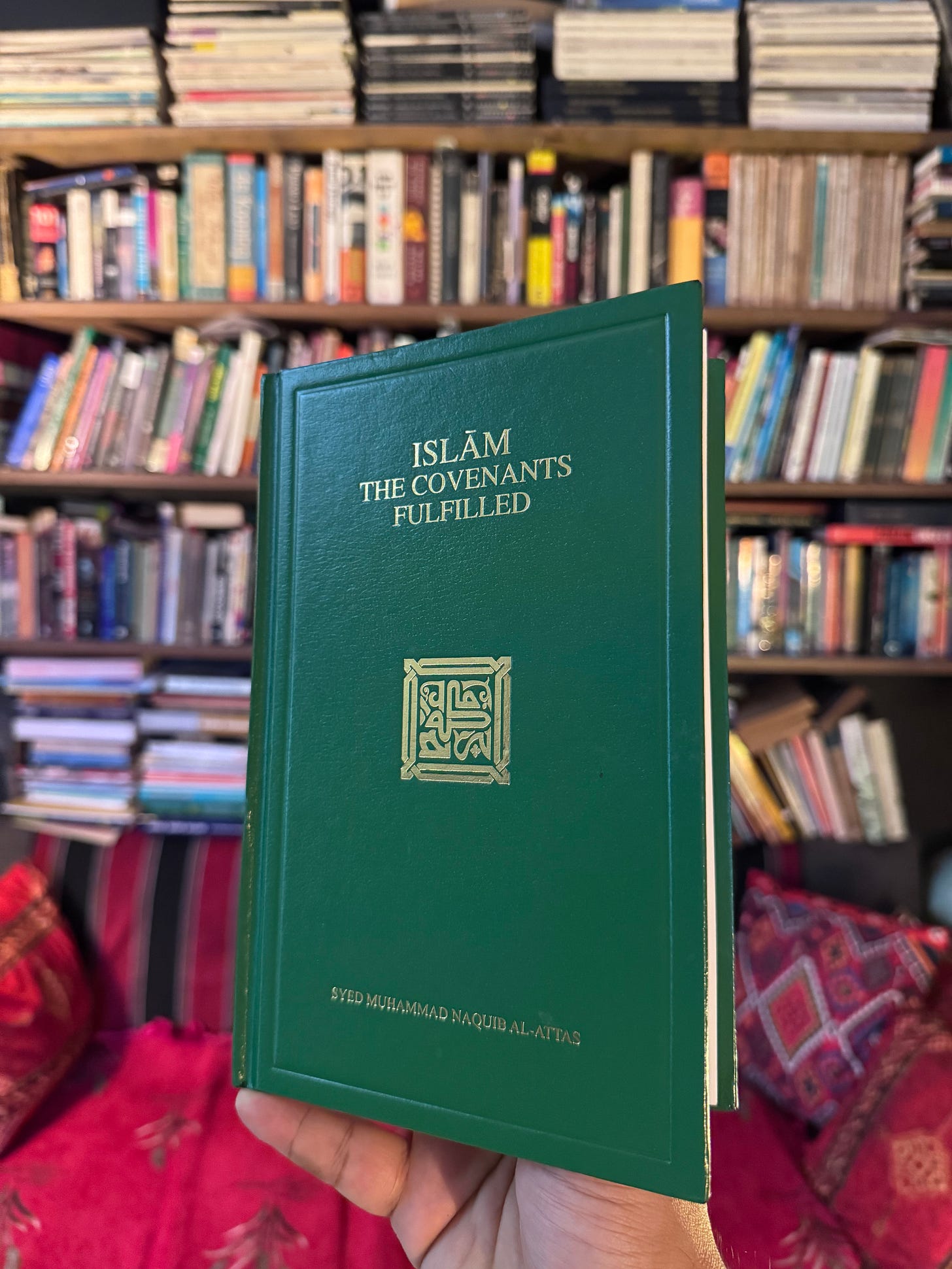Overview
In Islam: The Covenants Fulfilled, Syed Muhammad Naquib al-Attas articulates a profound philosophical and metaphysical argument that situates Islam not merely as a religion, but as the completion and fulfillment of all previous divine revelations. Written in the author’s elegant and precise style, this slim but weighty volume serves as both a defense and affirmation of Islam’s finality. Al-Attas reclaims the Islamic worldview as rooted in metaphysical truth and covenantal consciousness — a trust (amānah) carried by humankind since primordial time.
Summaries
The book explains Islam’s unique position as the fulfillment of all earlier Abrahamic and pre-Abrahamic covenants. It ties historical revelations into a continuum culminating in the final Prophethood of Muhammad. The author traces the metaphysical promise humanity made to God before creation.
Islam is not a break from previous religions, but their perfected conclusion.
A reminder that divine truth unfolds through a deliberate, divine order.
Al-Attas presents the Qur’an not just as scripture, but as confirmation and clarification.
He challenges secular readings and modern distortions of history and epistemology.
True knowledge, for Al-Attas, is anchored in metaphysical hierarchy and divine intention.
Language, symbols, and meaning must be purified from colonial residues.
The worldview of Islam must be restored to reclaim civilizational balance.
He critiques Western frameworks imposed on Islamic thought, especially secular historicism.
The book offers an epistemological recalibration centered on divine revelation.
Time is not linear and secular but cyclical and sacred.
Prophethood is not merely ethical leadership but cosmological necessity.
The finality of Islam is both temporal and ontological.
Al-Attas emphasizes the primordial covenant (al-mīthāq) made by all souls before birth.
This covenant is a central metaphysical truth ignored in modern discourse.
Islam reawakens this truth and realigns humanity to divine purpose.
Man is not autonomous but a trustee (khalīfah) of divine order.
Fulfillment of this trust is Islam’s ultimate message.
The tone is philosophical, deliberate, and intellectually rigorous.
Al-Attas writes as a metaphysician and civilizational thinker.
He invites readers to reorient their worldview through a sacred lens.
The book is part reminder, part roadmap for Muslims seeking clarity.
A vital text in the project of decolonizing Muslim minds.
Key Lessons
Islam as the Final Covenant, Not a New Religion Islam is not a rupture from the past but the completion of a long-standing divine narrative. The Qur’an confirms, purifies, and fulfills earlier revelations — it is the final covenant humanity must uphold.
Sacred Knowledge as Anchored in Tawḥīd (Oneness) Knowledge is not neutral or fragmented. True knowledge must lead to recognition of divine unity and purpose. Secular, materialist epistemologies fragment and obscure this truth.
The Importance of Reclaiming the Islamic Worldview Muslims must reclaim their metaphysical and epistemological foundations. Without this, the ummah remains colonized not just politically, but spiritually and intellectually.
Reflections
Reading Islam: The Covenants Fulfilled feels like being called back to an ancient promise buried deep in the soul. Al-Attas does not merely argue — he reminds. In an age where Islam is often approached sociologically, politically, or even apologetically, this book returns us to first principles: the divine trust, the sacred covenant, the eternal truth. It urges us to think not only about what Islam is, but what it means — cosmologically, spiritually, and civilizationally.
This is not a casual read; it is an invocation. Al-Attas speaks from the domain of meanings (ma‘nā), not just forms. It is a book best read slowly, contemplatively — perhaps even as a form of dhikr.
Conclusion
Islam: The Covenants Fulfilled is more than a philosophical treatise — it is a clarion call to rediscover Islam as an ontological truth and civilizational force. For those seeking to understand Islam beyond mere practice and into the realm of sacred metaphysics, this book is essential. Syed Muhammad Naquib al-Attas remains one of the most lucid and necessary voices in the reawakening of the Muslim intellectual tradition.
Dr.Kamal Sabran





Such a beautiful words 🤲🏻